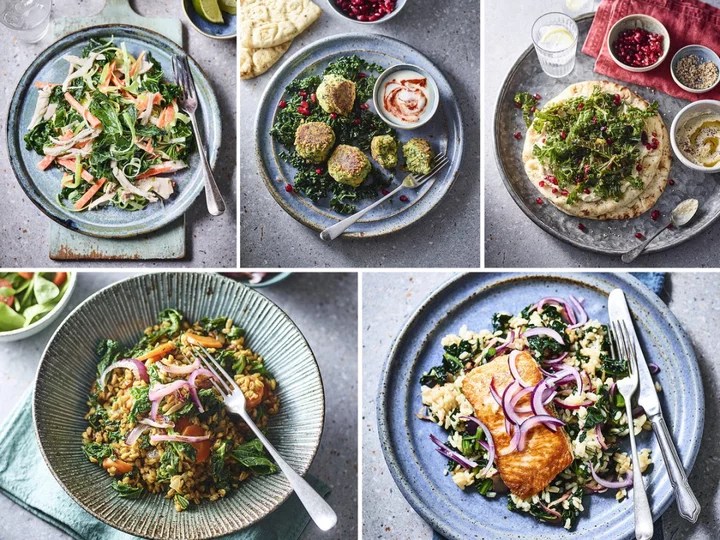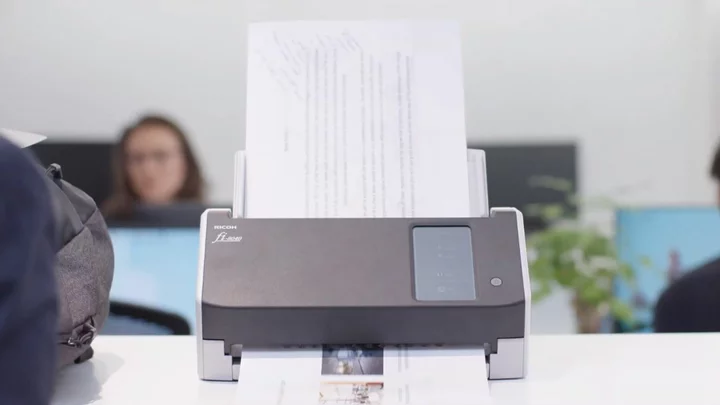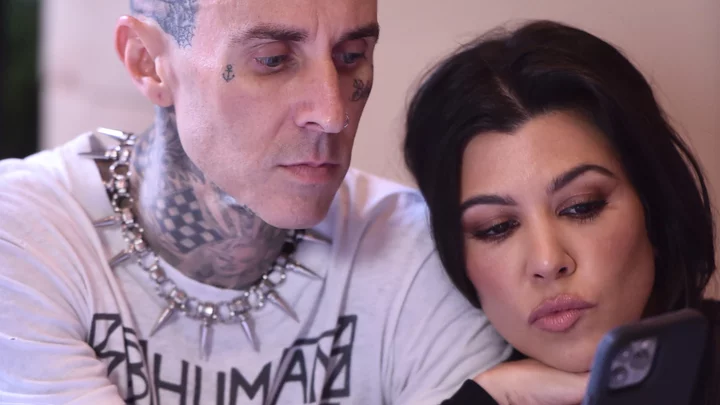
Get 130 hours of Python training for under £20
TL;DR: The 2023 Complete Python Certification Boot Camp Bundle is on sale for £15.46, saving
2023-07-22 12:27

'Sexist' ball girl outfits, silencing the women's finalists and small birthday cakes: Madrid Open causes controversy
One of the most prestigious tennis tournaments outside of the four grand slams, the Madrid Open attracts the biggest names in the sport.
2023-05-10 00:51

The best VPNs for unblocking Hulu
This content originally appeared on Mashable for a US audience and has been adapted for
2023-08-09 18:51

After McDonald's, Burger King India drops tomatoes from its menu
Prices of essentials like tomatoes have skyrocketed in India in recent months.
2023-08-17 13:16

30-minute summer recipes for all the family to enjoy
Warm summer evenings call for tasty meals, without having to spend hours in the kitchen. To help those looking for quick and easy summer mealtime inspiration, Discover Great Veg has shared a menu of tasty recipes packed full of our favourite vegetables, that can be on the table in under half an hour. With five flavoursome recipes to choose from, each inspired by global cuisines, there is something for everyone to enjoy. From the Moroccan flavours of the harissa and kale flatbreads, to the washing-up friendly, one-pot kale and carrot pilaf, these dishes are all fuss-free and can be made with minimal preparation. For a light and zesty supper with fewer than 450 calories, look to the Asian-style shredded chicken and kale salad. This dish takes less than five minutes to cook and is ideal for using up any leftover roast chicken you may have in the fridge. The Japanese-inspired salmon with soy, cavolo nero and sushi rice makes an impressive dinner, but takes just 20 minutes to get on the table. The kale and carrot pilaf is an easy, nourishing meal for all the family to enjoy, and better still – it only needs one pan to make. Finally, bring a taste of the Middle East to your day with the cavolo nero and chickpea falafelswith harrissa, a colourful dish that takes just 10 minutes to prep and 10 minutes to cook. Or the harissa, kale and hummus flatbreads is a tasty alternative to a sandwich and contains one of your five a day, is low in saturated fat and a great source of fibre, protein and folate. Asian-style shredded chicken and kale salad Serves: 2 Prep time: 10 minutes | Cooking time: 3 minutes Ingredients: 125g kale 1 small leek, shredded Zest and juice 1 lime 3 tbsp coconut cream 1 tbsp mayonnaise 1 tsp Thai fish sauce 1 carrot, shredded 200g roast chicken, shredded Method: Cook the kale in boiling water for 2 minutes, add then leek and cook for 30 seconds then drain and run under cold water. Pat dry on kitchen paper. Meanwhile, in a large bowl, mix together the lime zest and juice, the coconut cream, mayonnaise and fish sauce, toss in the carrot, chicken and kale mix, season to taste. Cooks tip: Great for leftover roast chicken from the Sunday roast and perfect for picnics. Cavolo nero falafels with harissa yoghurt sauce Serves: 2 Prep time: 10 minutes | Cooking time: 10 minutes Ingredients: 400g can chick peas, drained and rinsed 200g pack cavolo nero, thick stalks removed 1 tbsp tahini 1 clove garlic ½ tsp ground cumin ½ tsp ground coriander 2 tbsp vegetable oil 100g yoghurt (or plant-based alternative) 1 tsp harissa paste Method: Place the chickpeas in a food processor with the leaves from 2 stems cavolo nero, roughly chopped, the tahini, garlic and spices and blend to a coarse paste, season well. Divide into 8 and roll into balls. Heat the oil and fry the falafels for 2-3 minutes until golden, turning once half way. Remove and add the remaining cavolo nero, shredded and fry for 2-3 minutes, season. Meanwhile, mix together the yoghurt and harissa. Serve the falafels onto the cavolo nero and drizzle with the harissa yoghurt. Harissa, kale and hummus flatbreads Serves: 2 Prep time: 10 minutes | Cooking time: 5 minutes Ingredients: 1 tbsp olive oil 250g bag kale, thick stalks removed 1 tbsp harissa paste 2 flatbreads 100g hummus Pomegranate seed and toasted sesame seed to garnish (optional) Method: Preheat the oven to 200C, gas mark 6. Heat the oil in a large frying pan and fry the kale for 3-4 minutes, add the harissa and season. Meanwhile, warm the flatbreads according to pack instructions. Spread with the hummus and top with the kale. Serve sprinkled with pomegranate and sesame seeds if liked. Kale and carrot spelt pilaf Serves: 4 Prep time: 10 minutes | Cooking time: 30 minutes Ingredients: 1 tbsp vegetable oil 1 red onion, chopped 2 carrots, sliced 1 tbsp curry powder 250g spelt 800ml vegetable stock 50g sultanas 250g bag kale Coriander to garnish Method: Heat the oil in a large saucepan and fry the onion and carrots for 5 minutes. Stir in the curry powder and cook for 1 minute. Add the spelt and then the stock and sultanas. Bring to the boil and simmer for 15 minutes, stirring occasionally. Add the kale and cook for a further 5 minutes. Season to taste. Serve sprinkled with chopped coriander. Salmon with soy, cavolo nero and sushi rice Serves: 2 Prep time: 10 minutes | Cooking time: 20 minutes Ingredients: ½ small red onion, sliced 25g sushi ginger, shredded, plus 1 tbsp pickling juice 125g sushi rice 1 tbsp vegetable oil 2 salmon fillets 125g thick cut cavolo nero 2 tsp toasted sesame oil 1 tbsp soy sauce Method: Mix the onion with the ginger juice and set aside. Place the rice, 250ml water and a pinch salt in a small saucepan, cover and cook on a low heat for 15-20 minutes until just tender, leave the lid on and set aside. Meanwhile, heat the vegetable oil in a frying pan and fry the salmon for 10 minutes, turning halfway until cooked through. Cook the cavolo nero in boiling water for 3-4 minutes, drain well. Heat the sesame oil in a frying pan and fry half the onion for 2 minutes, add the ginger, cavolo nero, rice and soy and stir fry for 1-2 minutes. Serve the salmon on top of the rice mixture and scatter with the remaining onion. For more information about great veg and to discover more delicious simple recipes, visit www.discovergreatveg.co.uk Read More What to cook this week: Tomato tart, sweetcorn pasta and other summery suppers Tofu chicken to chickpea bacon – how and why you should make plant-based meat at home The dish that defines me: Mallini Kannan’s baked honey-soy salmon Breakfast for dinner and four other things you should cook this week How to save money in the kitchen according to top chefs Money-saving chilli con carne that absolutely slaps with flavour
2023-08-22 14:00

Nikon 70-180mm and 180-600mm Strengthen Z Telephoto Lens Library
Nikon is adding a pair of lenses to its growing Z mirrorless library. The Nikkor
2023-06-21 19:29

‘Black Mirror’s 'Joan Is Awful’ has 1 key line that foreshadows the ending
Black Mirror episodes are often complex and twisty, and Season 6's "Joan Is Awful" –
2023-06-22 23:48

Andrew Tate: Why did Emory Tate 'throw away' notorious kickboxer's Nintendo 'forever'?
Andrew Tate recalls his father, Emory, throwing away his Nintendo even after writing a two-page apology letter
2023-05-22 16:00

New minimum pay rates for NYC app-based food delivery workers are delayed
New York City was ordered by a judge to temporarily delay new minimum pay standards for app-based food delivery workers
2023-07-08 06:54

Ricoh fi-8040 Document Scanner Review
The Ricoh fi-8040 ($655) is the new entry-level model in Ricoh’s fi-8000 series of desktop
2023-10-11 05:18

Are all men obsessed with the Roman Empire? We investigate.
Ask the dudes in your life how often they think about the Roman Empire. You
2023-09-16 18:55

TUI Points to Strong Bookings for Summer Amid Travel Recovery
TUI AG said summer bookings are approaching pre-pandemic levels, the latest sign that the travel sector is recovering
2023-05-10 14:48
You Might Like...

What to stream this week: 'And Just Like That' back, Kelly Clarkson sings, Robert Downey Jr. drives

Kourtney Kardashian is pregnant, expecting first baby with husband Travis Barker

United’s CEO Sees Pilot Deal Adding Over $8 Billion in Costs

Nixit Wants You To Get Comfy Masturbating During Your Period

Alix Earle's pic in sizzling blue bikini takes Internet by storm, fans say 'you're glowing queen'

Sotheby’s Will Lease Headquarters Space to Weill Cornell

Why trans people need to be included in the abortion fight

A Comprehensive List Of All The Best Labor Day Sales You Can Shop Now
